Bio-ID Student Shneel Malik Wins £10,000 Art Foundation Futures Award for Material Innovation
3 February 2021
Shneel won the award for Indus - a pioneering bio-integrated tiled wall that enables artisan manufacturers to reduce their environmental impact.
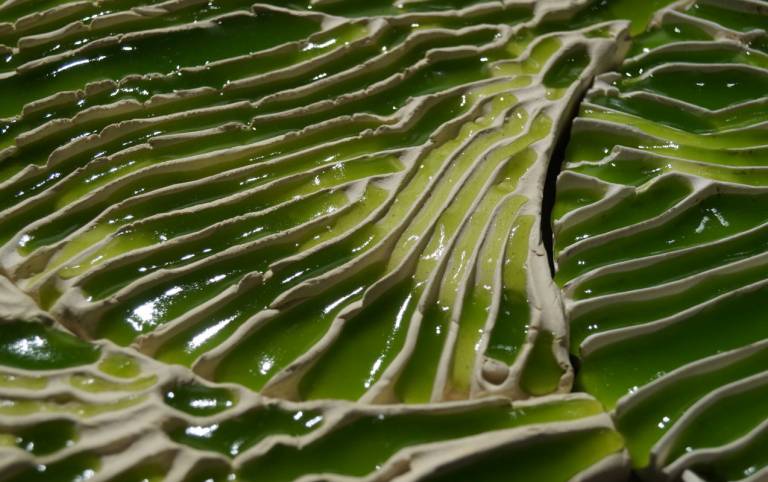
Shneel, an architect and bio-designer, is pursuing her PhD in Architecture Design within the Bio-Integrated Design Lab at The Bartlett. She developed Indus to reduce water pollution in artisan manufacturing communities in underdeveloped and developing countries. Waste water is often contaminated with cadmium and other heavy metals, and released into the surrounding environment. Instead, channels in the Indus tiles are filled with microalgae that absorb the pollutants as water flows over them. The treated water can then be recycled through the manufacturing processes.
The prestigious prize, awarded by the Arts Foundation, is part of their fellowship scheme, which enables practicing creatives across different disciplines to be nominated for funding, with the prizes helping toward living and working costs. Shneel’s work was the winner in the Materials Innovation category, beating three other finalists. The judging panel was made up of inventor Thomas Duggan, Commissioning Editor of Wallpaper* magazine TF Chan and curator Priya Khanchandani.
The judges said,
“We appreciated that Shneel Malik acknowledges geographical context in her work with her blend of science, craft and architecture. She brings her work to local craftspeople in India, mixing high and low technology to address the important issue of the water scarcity, particularly in the global South. Malik’s clay system is technical, accessible, and also beautiful."
Shneel was awarded a £10,000 fellowship, which she intends to use to establish Indus as a sustainable business.
Indus was also shortlisted in 2020 in the Design Museum’s Beazley Designs of the Year.
More about the project
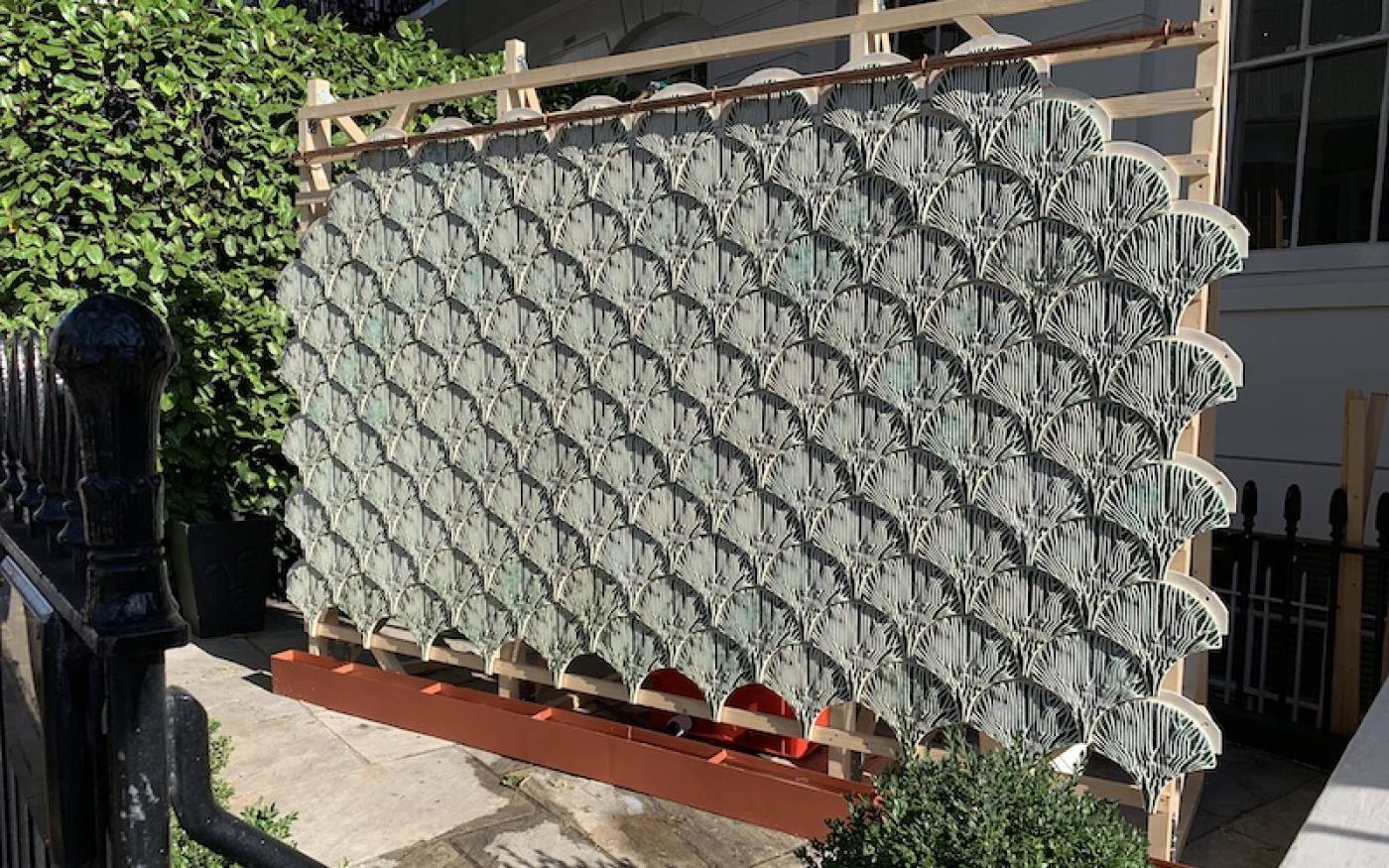
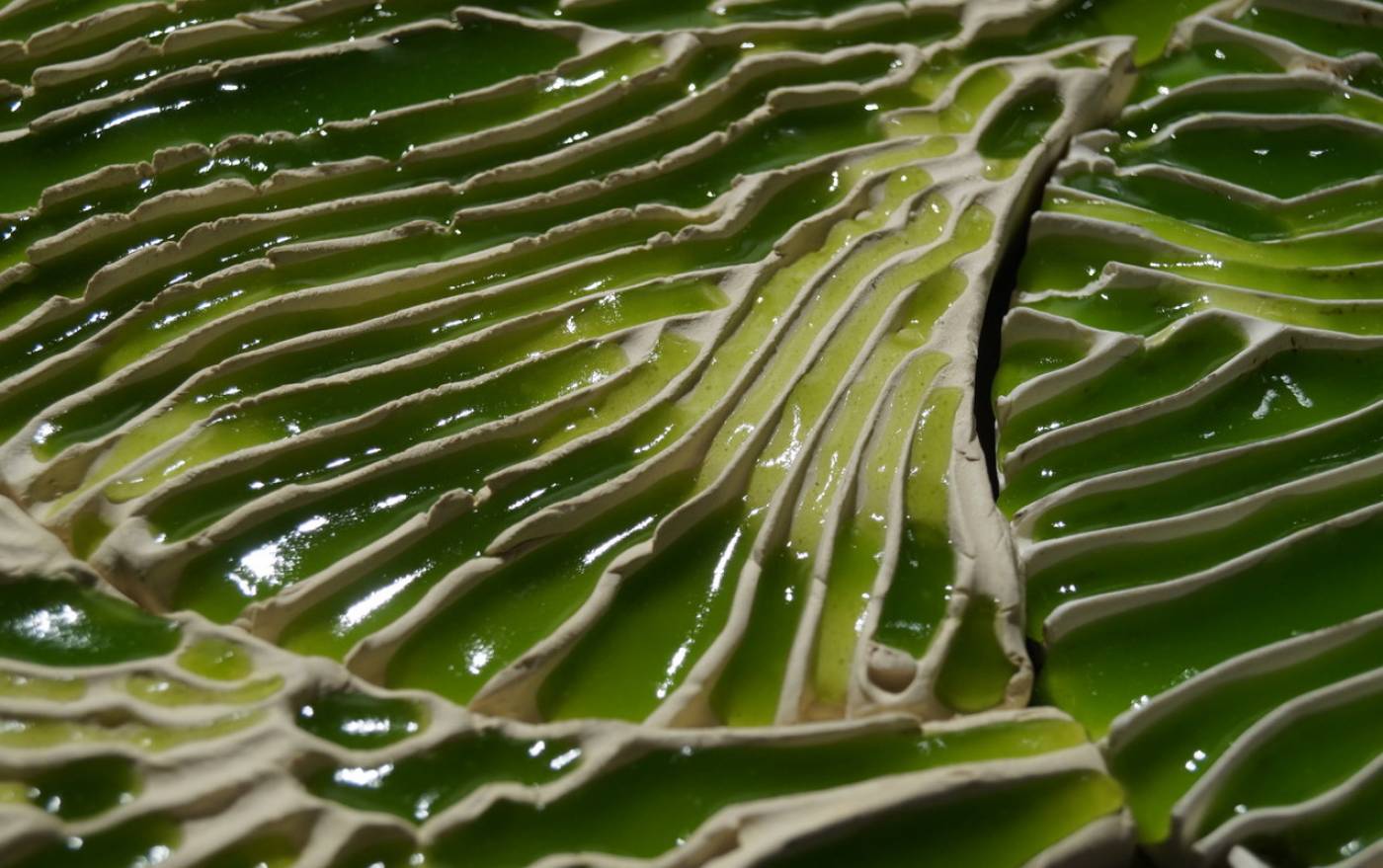
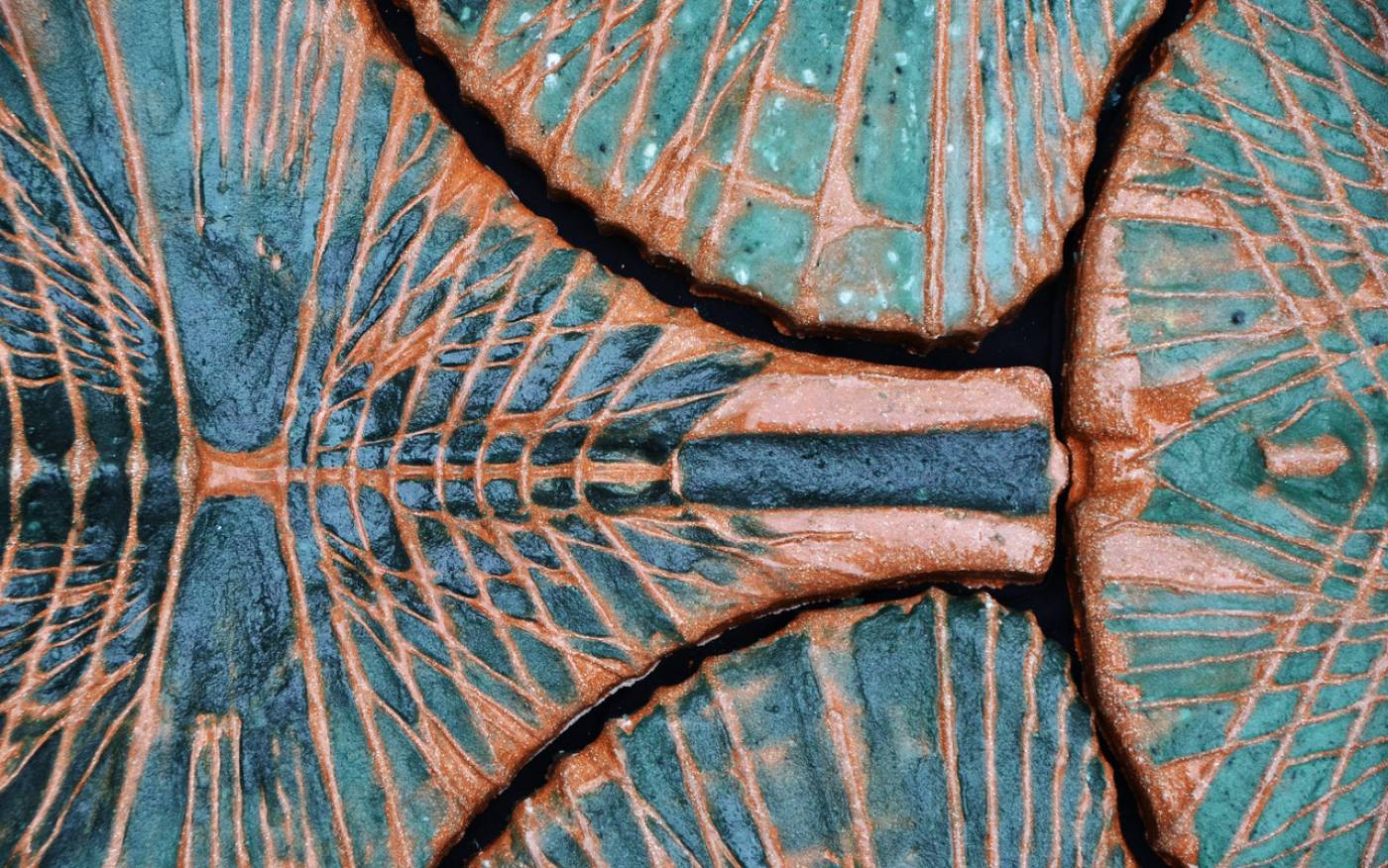
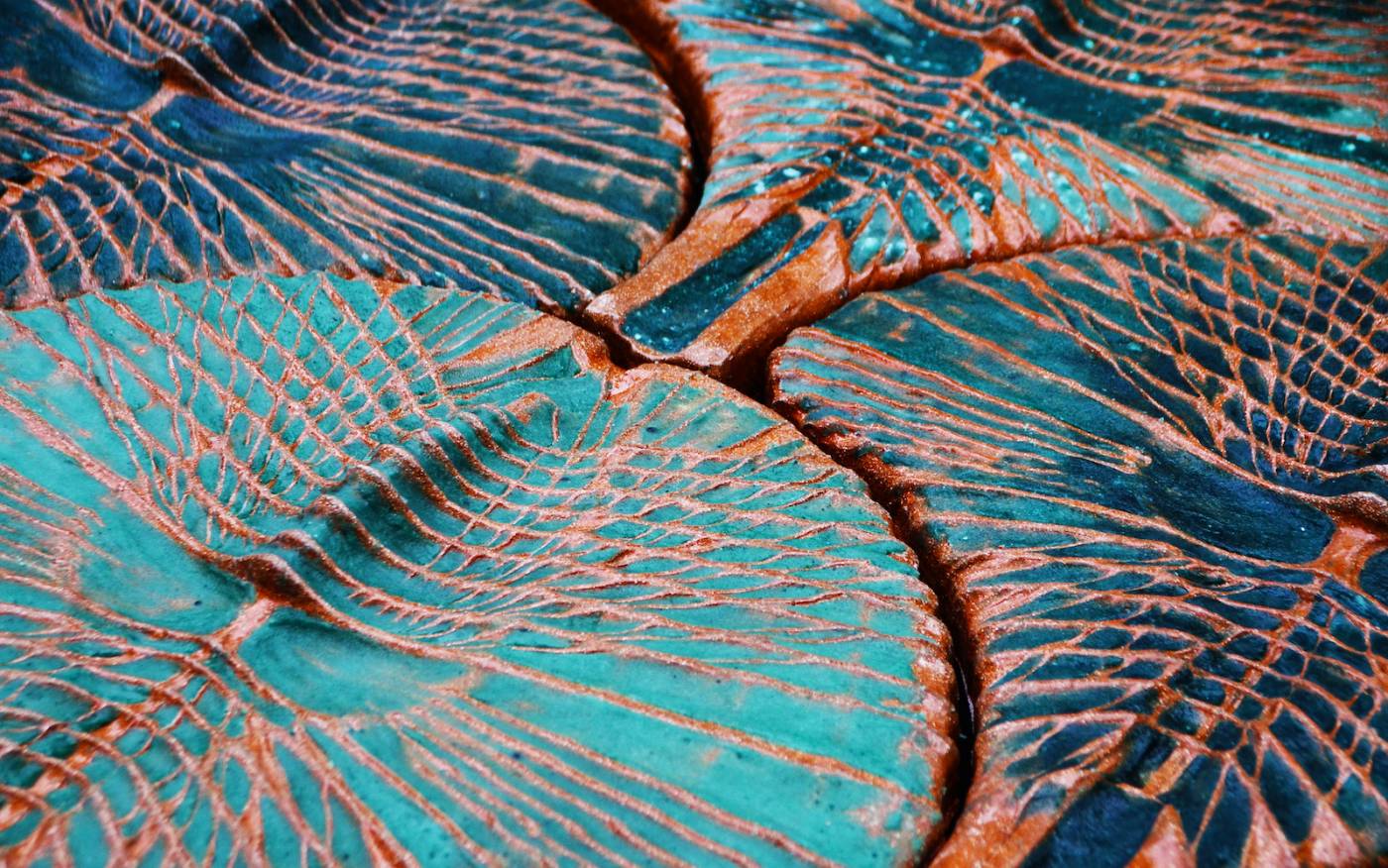
Indus is a biologically integrated wall, designed using computational algorithms to create ceramic scaffolds which contain microalgae for bioremediation of polluted water. In a system of interlocking modular tiles, vein-like channels are pressed into clay – inspired by the architectural form of leaves, whose surfaces distribute water evenly – and filled with a seaweed-based hydrogel with microalgae suspended in it. Computational fluid simulations further optimise the water distribution throughout the structure, enabling a more efficient algae-wastewater contact. As waste water flows over the tiles, the microalgae, which can remain active for up to several months, extract heavy metals like cadmium. The reusable tiles can be removed one by one to be maintained and refilled with fresh hydrogel.
- Project credits
Team: Shneel Malik, Dr. Brenda Parker, Prof. Marcos Cruz
Bio-Integrated Design Lab, Bartlett School of Architecture, UCL
Fabrication support / Ceramicist: Richard Miller, Froyle Tiles, UK
With the support of Winston Churchill Memorial Trust Activate Fund, UK 2020; UCL Innovation & Enterprise, launch competition UK 2019; EPSRC Global Challenges Research Fund, UK 2017.
NGO Support from Pure Earth, India & Centre for Environment Education, India.
More information
- Visit Bio-ID Lab’s website
- Visit the Indus website
- Read about the Futures Award on the Arts Foundation’s website
- Indus nominated for the Beazley Designs of the Year
- Find out about the Bio-Integrated Design MArch/MSc
- View Shneel Malik’s profile
Images: Project Indus, Bio-Integrated Design Lab - Shneel Malik
 Close
Close

